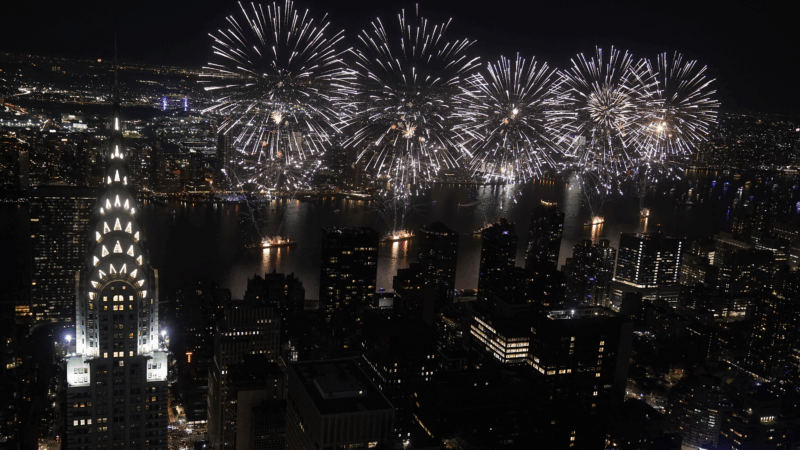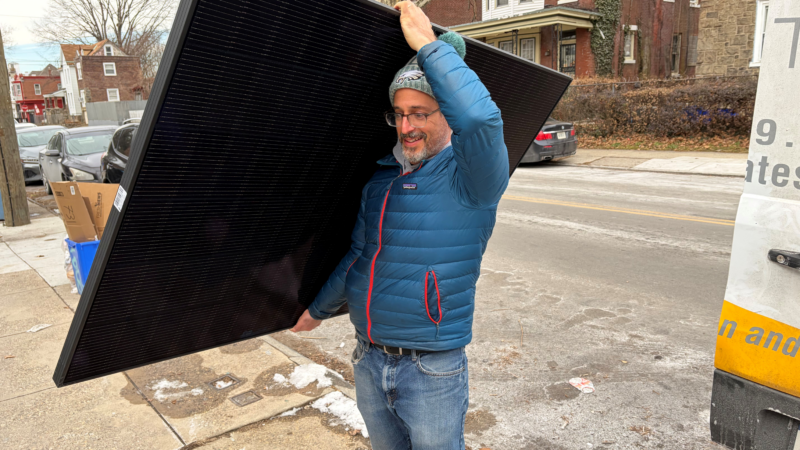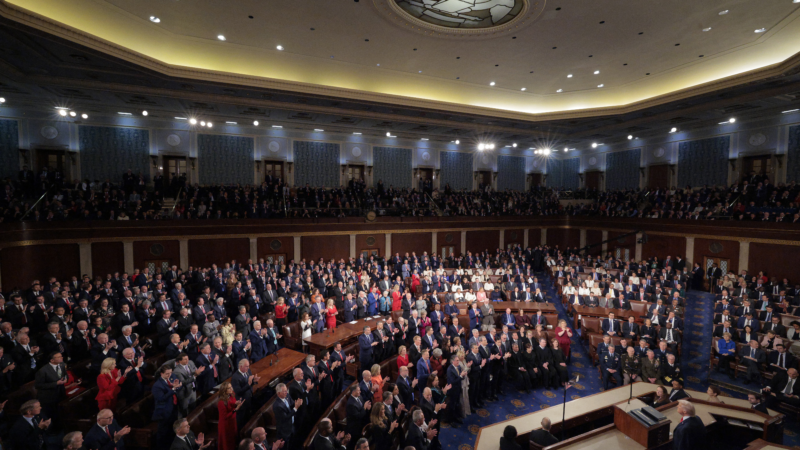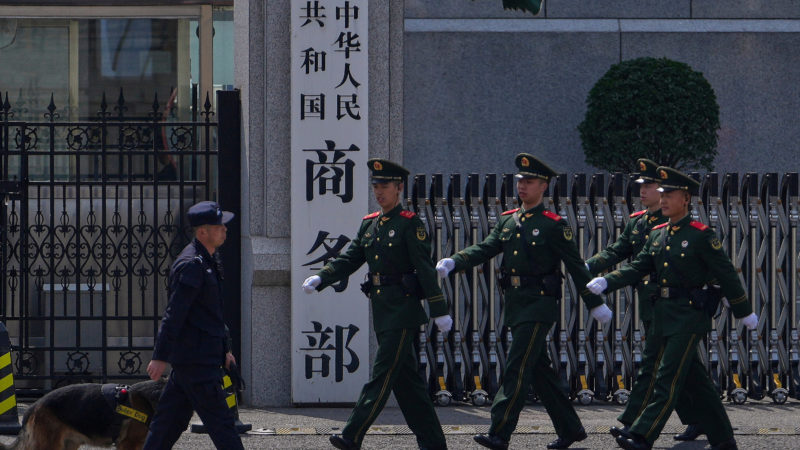Looking forward to July 4 fireworks? Tariffs may take the spark out of your fun
Americans will soon be celebrating the Fourth of July with cookouts, parades and, of course, fireworks. But those fireworks may be more costly and harder to come by this year, as a result of President Trump’s tariffs.
“I would anticipate that most people are going to get a little less bang for their bucks this year,” says Julie Heckman, executive director of the American Pyrotechnics Association, an industry trade group.
That’s because when it comes to the rockets, sparklers and fountains used to mark Independence Day, the U.S. is almost totally dependent on China — the country that invented fireworks more than a thousand years ago.
“China is the global supplier of fireworks,” Heckman says. “For the U.S. market, 99% of the backyard consumer fireworks are manufactured in China and 90% of the professional display fireworks are manufactured in China. So they are basically our sole source.”
How importers are having to deal with tariffs
Fireworks got a pass from the U.S.-China trade war the last time Trump was in office. But not this year. Like almost everything the U.S. buys from China, fireworks were hit with double- and even triple-digit tariffs this spring.
Some importers simply halted deliveries to avoid the import taxes.
“I think we will see some product shortages,” Heckman says. “I would encourage customers to shop early for the best variety of product.”
The American Fireworks Company in Hudson, Ohio, had already stockpiled fireworks before the tariffs took effect. But it still made for a volatile season.
“We’ve changed pricing four different times,” says John Sorgi, whose great-grandfather started the company in 1902. “At one point we were changing them pretty much every other week.”

In addition to selling fireworks, Sorgi’s company stages hundreds of professional shows each year. As soon as this Fourth of July is over, he’ll start looking ahead to 2026.
“This is go-time for us,” Sorgi says. “It’s go time for the Fourth of July, but it’s also go-time to get your orders in and get them moving for next year.”
2026 looms large for the fireworks industry
The fireworks industry has been eagerly anticipating 2026 for a decade. Not only does the Fourth fall on a Saturday next year — which typically means a jump in backyard fireworks sales — but it’s the climax of a year-long celebration of the nation’s 250th birthday.
“We believe it’s going to be a huge year,” Heckman says.
But it’s hard to plan for that big party without knowing what the tariffs will be. For now, Chinese fireworks are being taxed at 30%. But unless a trade deal is reached with China, that could rebound to April’s level of 145%.
Sorgi says that would choke off a lot of imports and turn many of next year’s Fourth of July displays into duds.
“I mean, your $50,000 show is going to look like a $30,000 show. Your $30,000 dollar show is going to look like a $15,000 to $18,000 show,” Sorgi says. “And then, when you get down to the smaller shows, which are a lot of the shows, those shows will probably just have to say, ‘We’re not doing it.'”
Given the strict safety and environmental regulations in this country, Heckman says it’s doubtful the U.S. is going to start making its own fireworks. Members of her trade group are hoping that Trump’s showmanship will outweigh his protectionist instincts, and allow for a tariff reprieve.
“We know he loves fireworks,” Heckman says. “And he’s been talking about America’s salute to the 250th from Day One. And our industry wants to be a major player in that.”
When a horse whinnies, there’s more than meets the ear
A new study finds that horse whinnies are made of both a high and a low frequency, generated by different parts of the vocal tract. The two-tone sound may help horses convey more complex information.
Trump’s many tariff tools mean consumer prices won’t go down, analysts say
The Supreme Court struck down President Trump's signature tariffs. But the president has other tariff tools, and consumers shouldn't expect cheaper prices anytime soon, economists say.
Hundreds of American nurses choose Canada over the U.S. under Trump
More than 1,000 American nurses have successfully applied for licensure in British Columbia since April, a massive increase over prior years.
Tax credits for solar panels are available, but the catch is you can’t own them
Rooftop solar installers are steering customers toward leases instead of purchases. Federal tax credits for purchased systems have ended but are still available for leased ones.
5 takeaways from Trump’s State of the Union address
President Trump hit familiar notes on immigration and culture in his speech Tuesday night, but he largely underplayed the economic problems that voters say they are most concerned about.
China restricts exports to 40 Japanese entities with ties to military
China on Tuesday restricted exports to 40 Japanese entities it says are contributing to Japan's "remilitarization," in the latest escalation of tensions with Tokyo.







